We launched Moodnotes, a collaboration between ustwo and Thriveport,download for iOS now.
Making useful and sustainable products that bring about positive change to people’s everyday lives is what really excites us at ustwo. We help companies make innovative products that have a growing and lasting impact on their business, the market, and the product’s users. We are also committed to finding new ways to reshape the studio model, through our own Invent Time programme, investing in and starting ventures, and launching our own products such as Monument Valley.
As a result, we openly embrace the small pockets of time between client projects. These are invaluable opportunities to learn from and with each other as our teams put a new lens on pervasive problems. By collaborating on new ideas and experiments, we create ideal training grounds for us all to learn new skills. By treating non-client work as a strategic investment – we’ve explicitly adjusted our budgets and profit forecast to allow for it – our product teams use current technology to solve problems in the here and now, rather than merely speculating on the future.
Converting an idea born out of Invent Time into a viable venture requires serious commitment – the constant pull of billable work remains hard to ignore.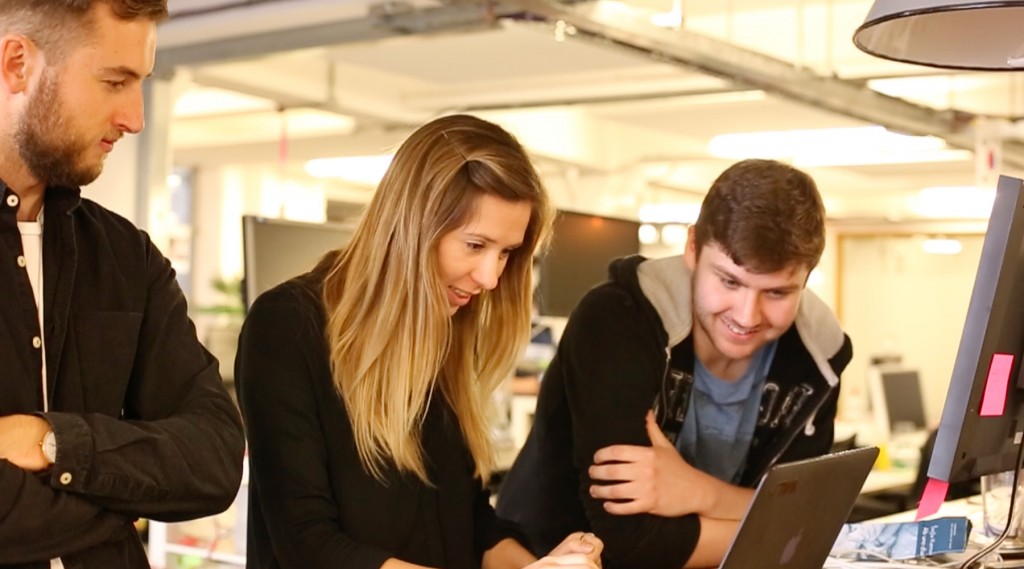
Health and Wellbeing
Of all the sectors we operate in, we believe health represents one of the biggest opportunities to make a real difference. Over half of our London studio has expressed a desire to create products that address problems within the health and wellbeing space. And, while it’s undeniable that our current healthcare system is broken, the question is where do you start?
Wellbeing is particularly relevant to the creative and tech industries and last Autumn a few designers used a week of down-time to investigate resilience – an individual's ability to properly adapt to stress and adversity. (How we support people to be more resilient is a frequent topic of discussion within the studio). While the initial goal was to help people increase their mental and emotional capacity, the team could not ignore the extent to which depression and anxiety is on the increase throughout society.
The WHO projects that by 2030 depression is going to be the number one cause of global disability.
It felt appropriate to not only create tool that enabled people to take control of their mental wellbeing, but to also try and tackle the stigma associated with the topic.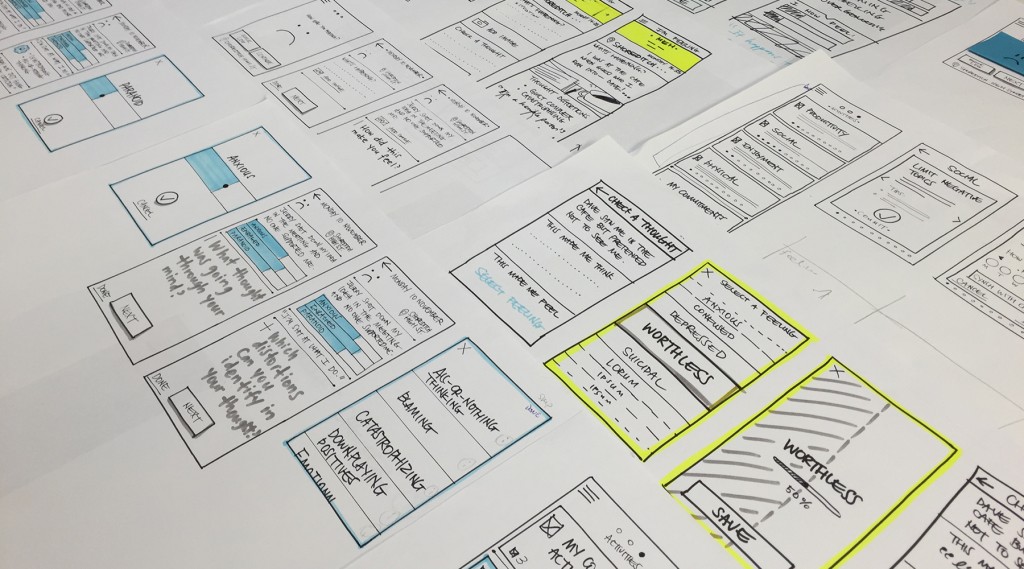
Starting with Potential Customers
To create a sustainable and compelling proposition we needed to genuinely and deeply understand behaviour. We designed our fieldwork to expose us to ‘extreme personas’ for firsthand learning: a coach in education, a monk, a sports scientist, and an actress were our first subjects. We followed these interviews with a survey for people who’d experienced depression or anxiety – to develop empathy with potential customers from which an initial hypothesis could be formed.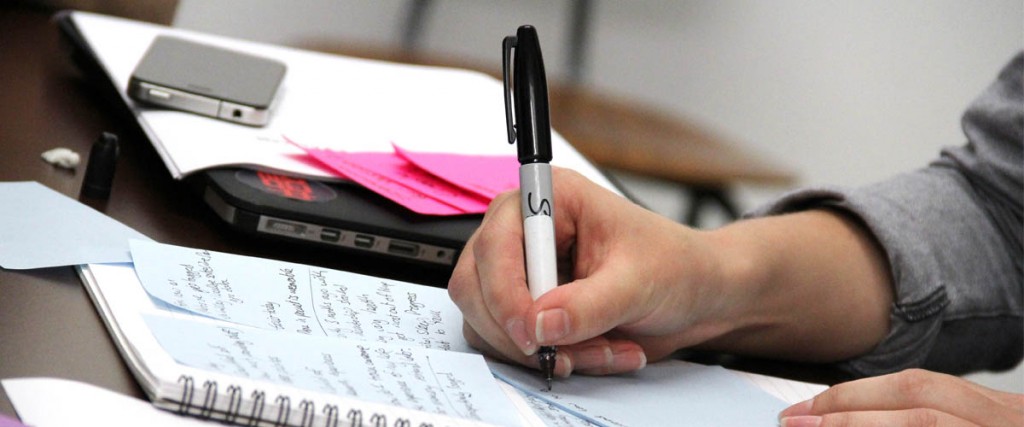
Proof of Concept
Rather than wasting too much time researching our assumptions and hypotheses, we created our first experiment – a one page sign-up site – and within a week validated with real people that we had an attractive proposition. This was our Go/No-Go moment, with validation for our proposition we were able to invest another block of time to identify a partner to collaborate with. Our expertise is product development across all verticals, but we strongly believe that convening the right kind of partnership is the key to creating truly useful and sustainable products.
One of the reasons we’re committed to launching our own ventures is to truly feel and understand the commercial pressures of our clients, never more so than when playing with the extremely limited funds and time a start-up has to cope with. We had to keep our ambition focused: Design, build and test a minimum viable product with a unique value proposition to launch in the market within 10 weeks.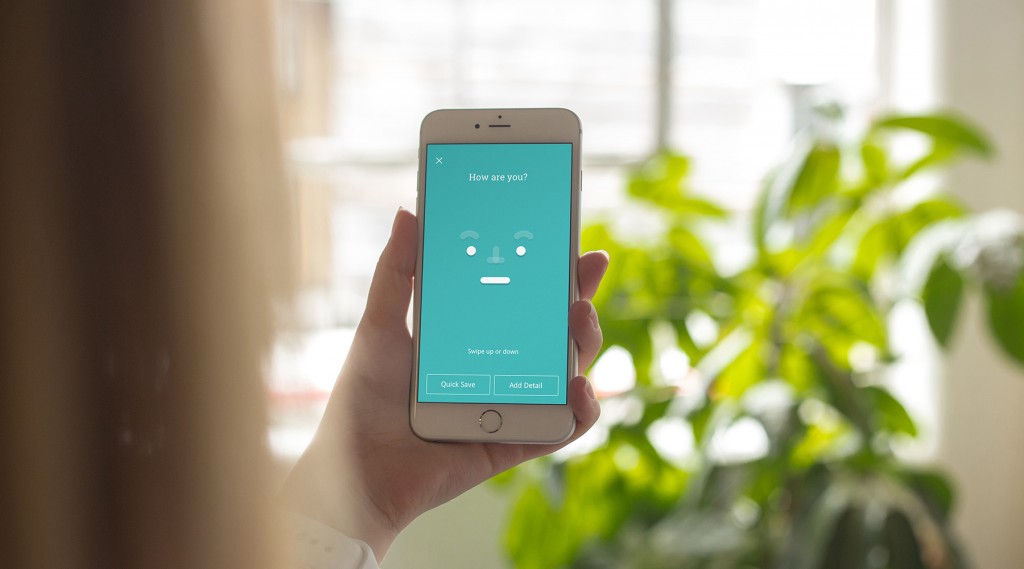
Product Vision
Working closely with our expert team in LA we co-authored our vision for the product:
“To create a smart journaling tool to help people develop healthier thinking habits.”
This statement became the focus for every feature we generated and every decision we made about the application. Through continual rounds of product development, user validation and learning we co-created an experience which could not only help you when you're feeling up, but also when you're feeling down. At each stage, Edrick and Drew kept us on course to create an app that was tailored to improving people’s thinking habits and emotional health.
Our intention was to design an experience that addressed both positive and negative moments (not just another ‘happy app’). Our goals for the product were simple:
- Help people to become more self-aware of their moods
- Provide content which helps people to identify which thinking traps they are falling into
- Facilitate an experience which helps people develop more positive thinking habits.
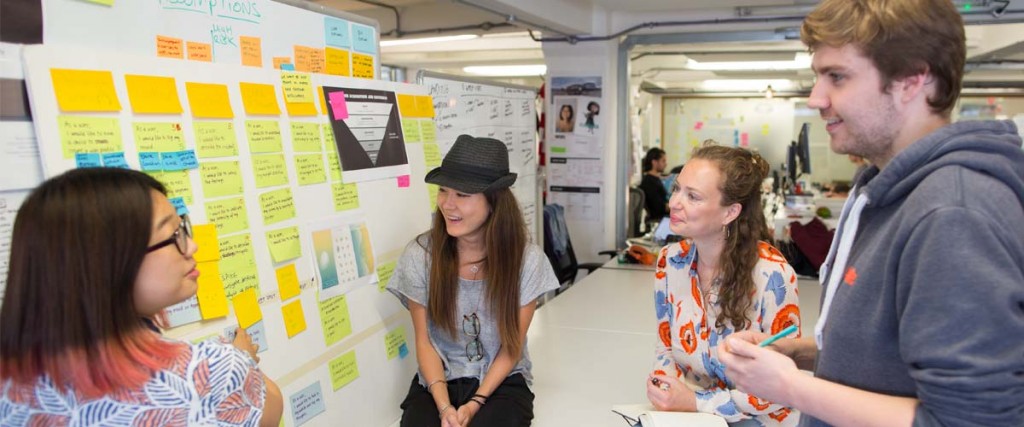
In Beta
There is a great duty of care with anything medically related. So before taking the app to market we wanted to carry out a beta trial to get additional feedback and double check some of our assumptions. Through a few tweets we were able to invite 500 people onto our trial – from the 1500 people that saw our landing page, 500 signed up to be part of the trial – a conversion metric that gave us further confidence in the proposition we’d created. Analytics allowed us to measure usage of the app features within our trial group and we were able to see that our retention rate was good (52% after the second week). Qualitative research helped us to understand our user needs further – their feedback shaped our prioritisation of the backlog prior to launch.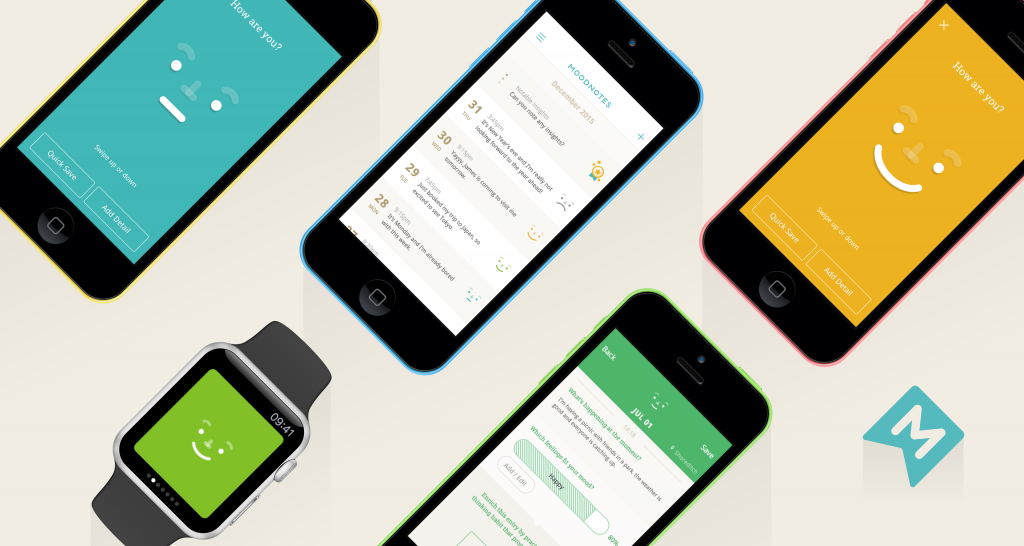
Working fast to get a product out in the wild and in the hands of real users is always exciting – it’s the users who ensure we’re making the right decisions and removing the features that don’t meet their needs. A key insight from our beta trial was that while some people came back to the app daily, the majority of our customer base regularly used the app two to three times a week. We had conceived of the app to cater to the idiosyncrasies and personal preferences of individuals and actually tested two versions of the mood history screen, a list view which revealed content consistently and a box collage view which revealed different content depending on how much content was inputted into an entry. We uncovered that most people preferred the consistency of the list view, so scratched the box view for our MVP launch (although, of course, it may make a comeback in months to come). We also discovered that we hadn’t quite got the cadence of notifications and reminders right for our beta app, so we prioritised the customisation of reminders for launch. While we want to encourage people to journal when they need to, adding additional digital noise to their daily lives would be counter-productive – it’s a fine balance.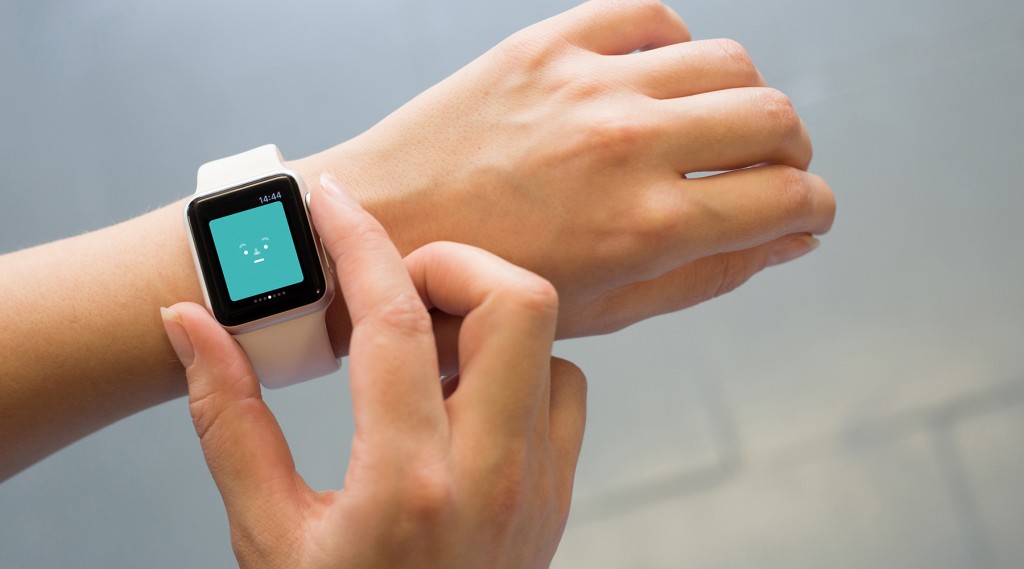
Launching Moodnotes
Today we are incredibly proud to fully launch Moodnotes.
There are a multitude of apps competing for people’s attention day to day, but Moodnotes gives you the opportunity to focus on yourself.
It empowers people to take control of their emotional health and mental wellbeing. For us, this is the biggest reward that this product offers.
To this day our team has not met with Edrick and Drew in person – Skype and Basecamp were much-relied upon these past months! But with the passion of our product team and a deeply collaborative mindset from our partners we believe we’ve been able to push the boundaries of mental wellbeing treatment. Now it’s for the market to decide if we are right.
All of the London studio has been involved in supporting Moodnotes in one way or another, but special thanks go to: Alana, Ben P and Ben S, Chris, Jack, Joyce, Kevin, Matthew, Mills, Nicki, Scott, Steve, Tiago, Ume and Yu Jin for their determination to take a Invent Time project to the next stage.
ustwo + Thriveport: The Making of Moodnotes from ustwo on Vimeo.Download for IOS now.
Selected Press:Wired USTechcrunchThe GuardianWired UKFastCoTech Insider